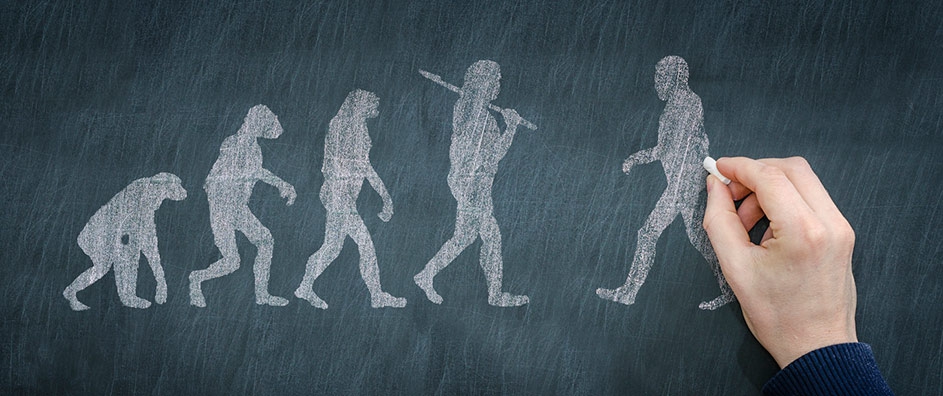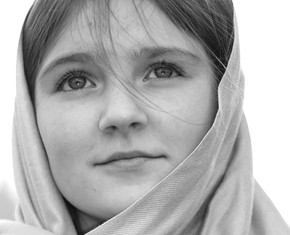The views expressed in our content reflect individual perspectives and do not represent the authoritative views of the Baha'i Faith.
Our consciousness makes us aware of the flow of energy through sensations in the body to the perceptions and powers of the spirit.
It is from man’s storehouse of passion that the warmth and light of his soul arise, transfigured. It is there, initially, that we hold concentrated, as in a seed, the finest essence, the most delicately adjusted spring, governing all spiritual development. When we have finally weighed things up, it is apparent that only spirit is worth our pursuit; but deep within us there exists a system of linkages, both sensitive and profound, between spirit and matter. – Teilhard de Chardin, Toward the Future, p. 68.
The fact that we have both an animal and spiritual nature corresponds with the two aspects of our being, material and ethereal. We cannot ignore one aspect in favor of the other; it seems we are born of matter and mature towards spirit. Following the forces of physical instinct leads to problems, and problems help develop our consciousness. According to psychologist Carl Jung, consciousness and problems go hand-in-hand. He talks about the animal and spiritual nature of man in terms of instinct and consciousness, respectively:
It is the growth of consciousness which we must thank for the existence of problems… It is just man’s turning away from instinct—his opposing himself to instinct—that creates consciousness. Instinct is nature and seeks to perpetuate nature, whereas consciousness can only seek culture or its denial. As long as we are still submerged in nature we are unconscious, and we live in the security of instinct which knows no problems… Problems thus draw us into an orphaned and isolated state where we are abandoned by nature and are driven to consciousness. There is no other way open to us; we are forced to resort to conscious decisions and solutions where formerly we trusted ourselves to natural happenings. Every problem, therefore, brings the possibility of a widening of consciousness, but also the necessity of saying goodbye to childlike unconsciousness and trust in nature. – Carl Jung, “The Stages of Life,” Modern Man in Search of a Soul.
Just as the individual matures, we change and grow collectively. The Baha’i teachings tell us that we have reached a new stage in our collective maturation—that we are no longer children. The needs and requirements of our age present us with new problems, demanding new solutions. As the human race enters adulthood, we face many of the same questions collectively that need to be addressed at the threshold of maturity in the life of an adolescent.
We can learn about addressing our world’s collective needs—and help them develop—by assisting the growth and development of young people. The global Baha’i community is arising to address this urgent need in the life of adolescents—the “junior youth” in that period of development when they experience surging energies which need to be channeled. The explicit purpose of the Baha’i junior youth program is the development of powers of expression, spiritual perception, and service to the community. You can learn more about the program by watching this short video.
The Junior Youth Spiritual Empowerment Program trains young people to align themselves with the forces of integration, love and attraction. This spiritual insight coheres with the scientific theory of Interpersonal Neurobiology (explored earlier in this series), which says:
Relationships that are attuned—ones that honor differences and cultivate compassionate connections—are integrative relationships that promote health.
Youth develop new capacities and powers during adolescence. If, as Baha’u’llah’s teachings say, the whole of humankind is now emerging from our collective adolescence, could it be that we will see the emergence of new powers and capacities in humanity? The Baha’i teachings say that the “supreme and distinguishing function” of Baha’u’llah’s revelation “is none other than the calling into being of a new race of men.” – Shoghi Effendi, Advent of Divine Justice, p. 16.
We may now be witnessing those new capacities and powers being born, and experiencing individual and societal transformation on a historically unprecedented level. In order to understand and perceive what is happening, we need to pay keen attention:
A new life is, in this age, stirring within all the peoples of the earth; and yet none hath discovered its cause or perceived its motive. – Baha’u’llah, Gleanings from the Writings of Baha’u’llah, p. 196.
This call to perceive permeates the Baha’i Writings. The field of knowledge concerned with beauty is called aesthetics, which comes from the root word aesthesia—the capacity to sense or perceive. One of Baha’u’llah’s titles is The Most Great Beauty. He calls us to obey his laws for love of his beauty—not physical beauty, but the beauty of the Baha’i teachings and the peace and unity they bring. Perhaps these new, maturing human capacities will help us coordinate the flow of energy to allow us address our world’s pains and needs. Perhaps, through habits of thought and behaviors born of the love of God, we may see the light of knowledge cast into our hearts, find balance where there was previously only contradiction, and act to heal the wounds which have assailed humanity.
The next and final post in this series is about the promise of awakening vouchsafed in the Baha’i Writings. We may each individually have some understanding of spiritual awakening, but some insights we can only gain by perceiving reality together.
















Comments
Sign in or create an account
Continue with Googleor